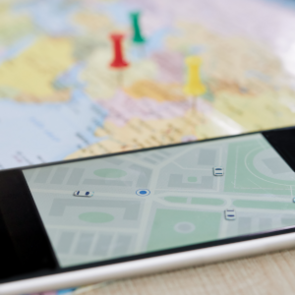Axis 3: Assistive technologies and knowledge transfer
Designing mobility assistive technologies and participating in the transfer of knowledge for more inclusive mobility is a central research objective for the Chair and one of its main research axes.
Assistive technologies
The knowledge and research developed in the first and second research axes of the Chair aim to contribute to the development of indoor and outdoor mobility assistive technologies adapted to people with different types of disabilities.
In particular, the work carried out within the Chair focuses on the integration of personal and environmental factors as well as their interactions in order to develop platial technologies, i.e. which are based on the understanding of the environment by the human brain rather than on a geospatial approach.
The research Chair is also interested in the personalization of mobility technologies, in order to communicate relevant and usable information to everyone according to the context and their preferences. Among other things, the potential of multisensory information is explored in order to enable the use of a device by a wide audience.


Knowledge transfer
The Chair can count on a network of institutional and entrepreneurial partners interested in the development of senseable cities and empowered mobilities. Research results are shared with them through scientific and knowledge transfer activities.
Training and collaborative interventions are organized to support the transfer of knowledge. Furthermore, the Chair also takes an active part in promoting research through entrepreneurship, by getting involved in the emergence of startups in social innovation and technologies.